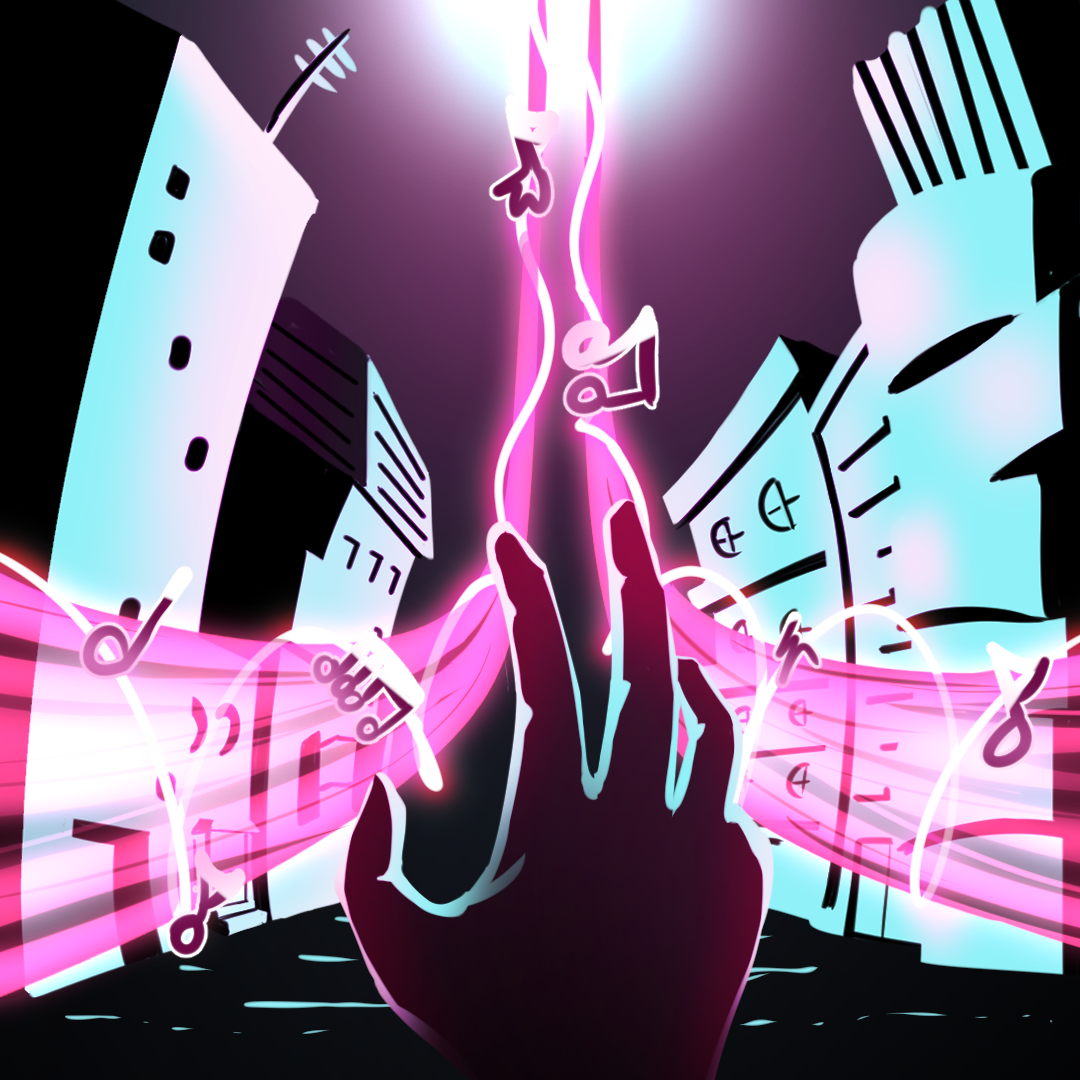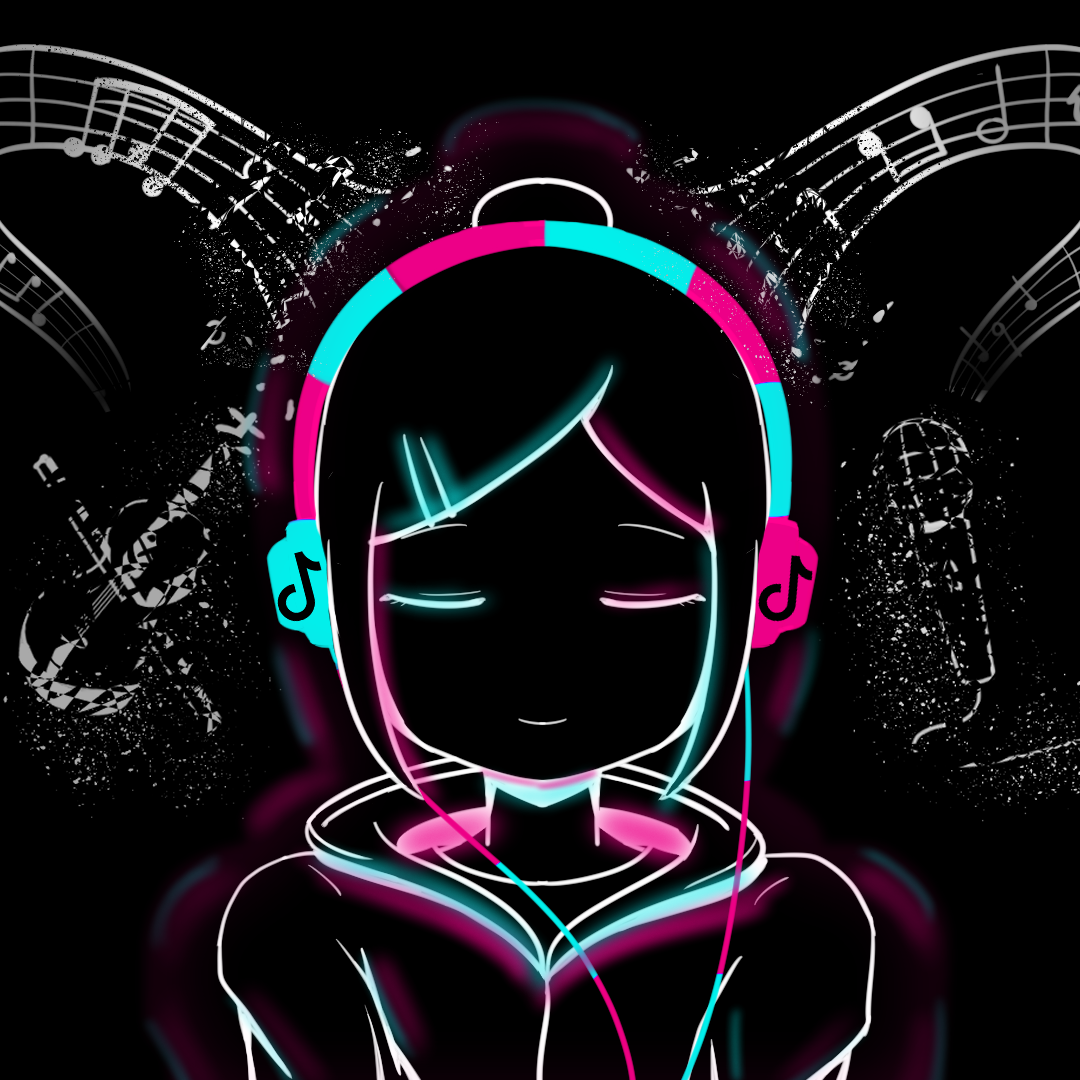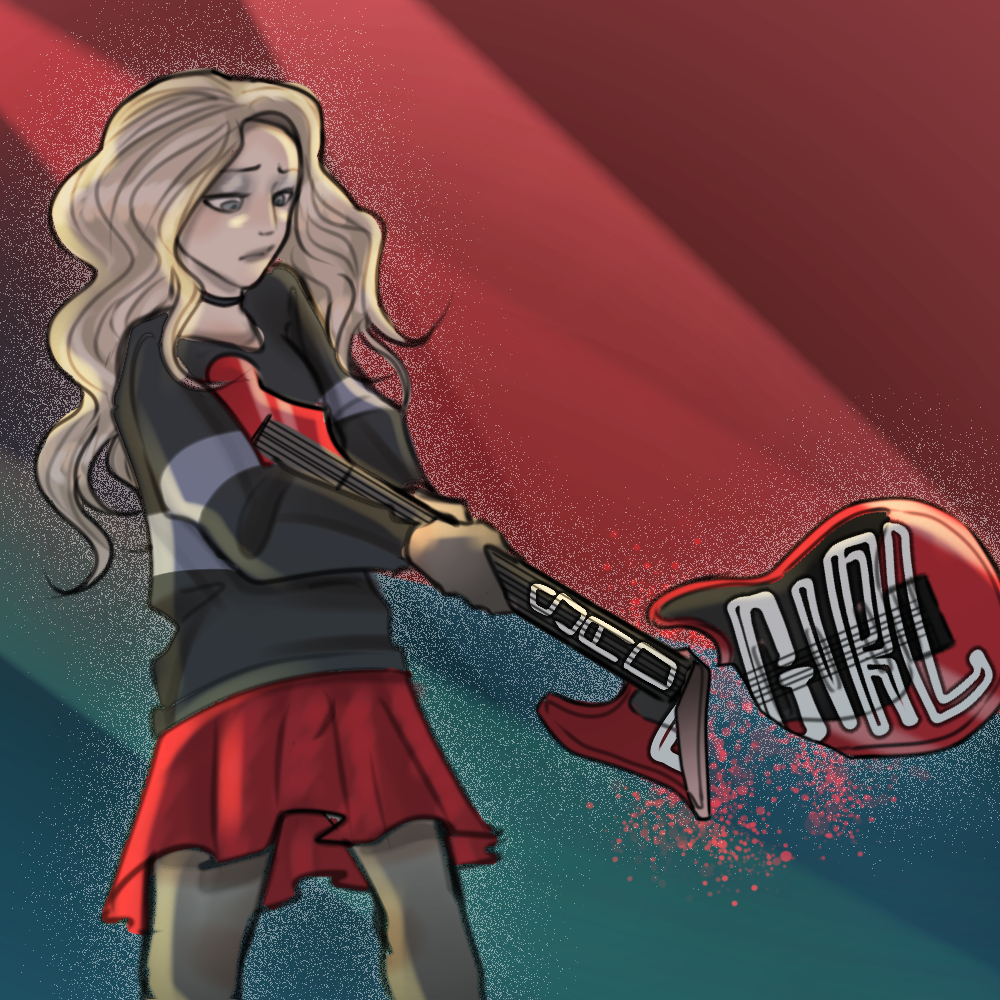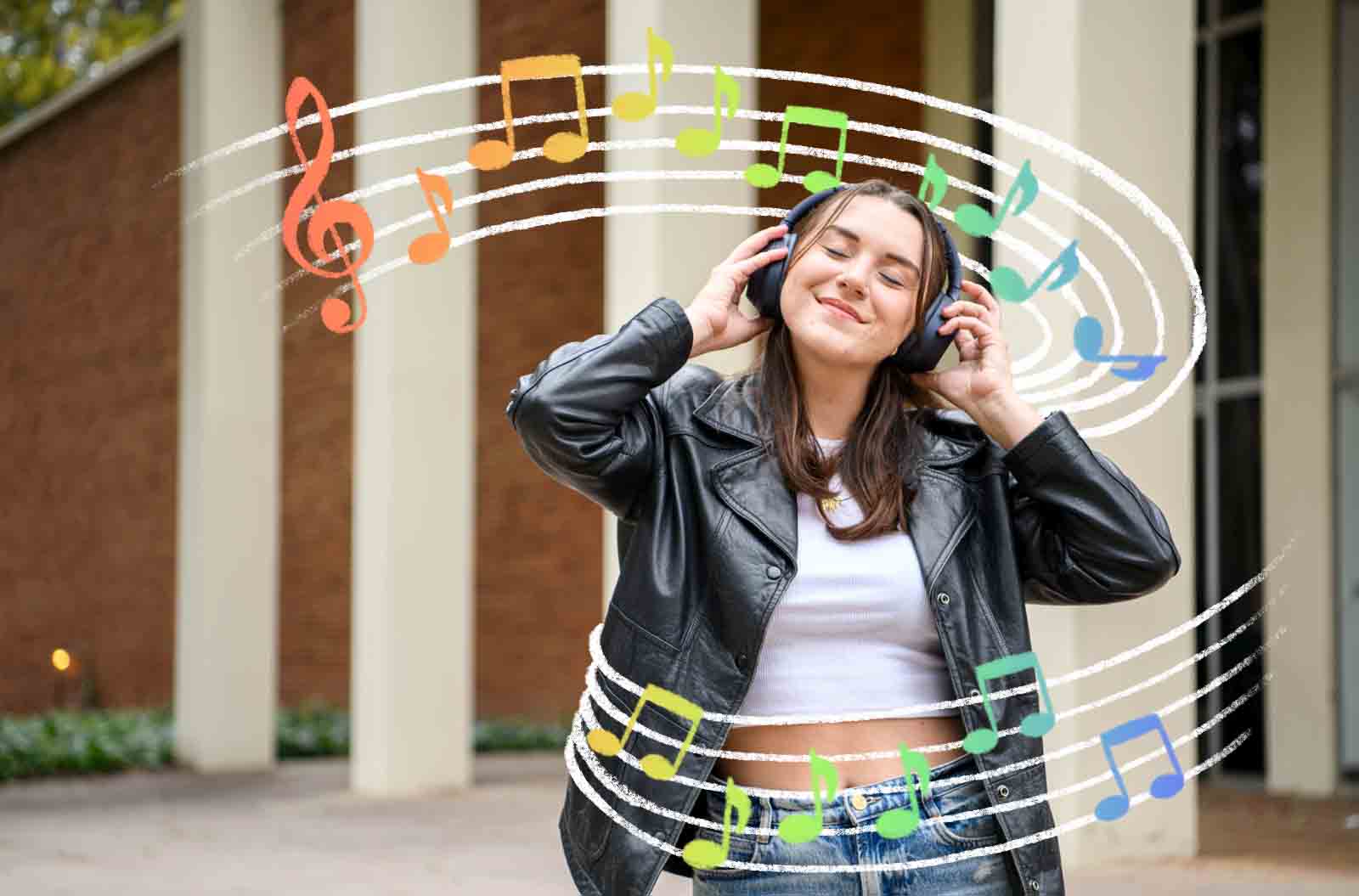Second Take: Listener creativity remains paramount with booming popularity of nightcore music

Alston Kao/Daily Bruin Staff
By Allison Bushong
March 5, 2024 11:43 a.m.
This post was updated March 5 at 8:23 p.m.
Thanks to social media, nightcore’s proliferation has sped up significantly in recent years.
Sped-up versions of popular songs dominate TikTok audios, driven by creators’ desire to squeeze longer chunks of a song into the app’s short video format. TikTok’s influence in popularizing and circulating pieces of music is undeniable, and it hasn’t taken long for music producers to realize the allure of fast tempos. The genre of sped-up music, or nightcore, has historically been created by community contributors, but many artists capitalize off TikTok’s obsession with sped-up audio by releasing their own nightcore remixes. While the momentum of artist-sponsored nightcore increases exposure and accessibility for the music industry, recent industry changes suggest the benefits of nightcore staying in the hands of the community.
Nightcore originated in the early 2000s when a Norwegian DJ duo of the same name experimented with tempo and pitch in their remixes of electronic dance music. The pattern of speeding up existing music exploded on LimeWire and YouTube, with the term “nightcore” expanding to describe an entire genre often associated with anime. YouTube remains a common platform for creative remixes, but the introduction of TikTok, the most downloaded app in the world as of 2022, widened the nightcore audience. Today, almost 600,000 videos have been posted under the #spedupsounds.
This momentum has inspired artists and labels to release official sped-up renditions of their songs. Speed Radio, a creation of Universal Music Group, released an album with sped-up versions of TikTok trending songs such as Ellie Goulding’s “Lights” and The Weeknd’s “Die For You” that amassed millions of streams on Spotify last year. Artists releasing official sped-up remixes centralize nightcore on streaming services such as Spotify and Apple Music, which increases accessibility for listeners who would otherwise resort to SoundCloud or TikTok for the audio. The production value and ease of access appeal to fans who previously listened to homemade remixes on social media platforms.
[Related: Second Take: Film review app Letterboxd successfully brings cinema lovers together]
However, it is important to acknowledge that many tracks would not have reached their levels of popularity without the help of TikTok’s nightcore community. “Escapism.” by RAYE and 070 Shake landed on Billboard’s Hot 100 in November 2022 as a direct result of a trending nightcore rendition from a TikTok creator. The artists responded to their TikTok fame by releasing “Escapism. – Sped Up” in December of that year, which amassed over 250 million streams on Spotify – separate from the 734 million streams on the original version.
Gracie Abrams responded to the growing popularity of her song “21,” prompted by a sped-up rendition circulating on social media, by posting a TikTok in 2022 captioned, “Should I have released it sped up honestly questioning everything.” “It’s never too late,” several users said, urging Abrams to produce her own sped-up remix of the song. This exemplifies a common pattern in artist-backed nightcore: sped-up releases from artists are often a response to the demands of fans or a fan-made nightcore remix trending online. Record labels’ attempts to monopolize nightcore make sped-up music more accessible but strip creative power from the community contributors who set these trends in the first place.
[Related: Second Take: Palworld is no ‘Pal’ to fans seeking to hold The Pokemon Company accountable]
This became especially prevalent with the contract renewal dispute between Universal Music Group and TikTok earlier this year, resulting in the disappearance of many popular songs off the platform. Hundreds of audios were removed, including the discographies of artists like Taylor Swift, Drake and Olivia Rodrigo, and countless videos were muted, much to the dismay of users. TikTok released a statement Feb. 28 confirming its ongoing removal of any music produced by Universal Music Group. This means that sped-up renditions released under the label’s umbrella will likely also be removed from the app, and users will again rely on listeners’ contributions to the nightcore genre when creating videos.
Keeping nightcore primarily in the hands of the community allows people to express creativity through remixing music. Nightcore trends on TikTok triggered resurgences of appreciation for older music, as creators sped up “Chiquitita” by ABBA and “Everybody Wants to Rule the World” by Tears for Fears, the latter of which was featured on Speed Radio.
As AI-generated covers begin to flood social media, new questions arise about where to draw the line between community creativity and a breach of artistic integrity. Artists often draw inspiration from fan creations, and listeners appreciate when their favorite artists release a remix based on a fan creation. Music is ultimately designed to be enjoyed and interpreted by different audiences, and continuing to encourage creative control for the community on platforms like social media ensures a flourishing industry.
Whether they speed it up or slow it down, listener interpretations are at the heart of what makes music popular.






